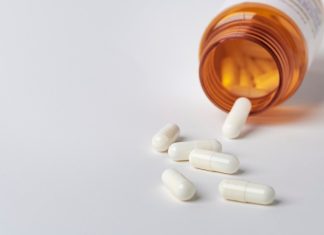Unrestricted sale of psychoactive drugs in pharmacies can lead to drug addiction and other serious consequences, said Irina Rukavishnikova, first Deputy chairperson of the Federation Council Committee on Constitutional Legislation and State Building, the Parliamentary Newspaper quotes her as saying. The senator also appealed to Mikhail Murashko, the minister of health, with a request to add new psychoactive drugs to the list of controlled medicines.
This concerns drugs with INN gabapentin, which are registered in Russia under trade names Gabapentin, Convalis, Neurontin, and a number of others. According to the senator, growing prescription drug addiction among adolescents remains a serious problem, especially in the regions apart from Moscow and St. Petersburg.
If psychoactive drugs continue to be sold in pharmacies freely, they may become the first step to harder drugs for some people, Rukavishnikova stressed. Therefore, such drugs should be included in the list of strictly controlled medicines, the senator believes. Her initiative was also supported by Tatiana Solomatina, Deputy Chairman of the State Duma Committee on Health Protection.
In January, deputies and senators have already submitted to the State Duma a bill on tightening responsibility for the sale of strictly controlled medicines without a prescription. It was suggested to impose fines on pharmacists in the amount of up to 20,000 rubles and on legal entities, of 200,000 rubles. Pharmacy workers will be fined for violations in the sale of controlled drugs, unless their actions have signs of a criminal offense, follows from the text of the bill. The liability for the sale of medicines without a prescription is currently are regulated by Article 14.4.2 of the Administrative Code, “Violation of legislation on the circulation of medicines”. According to the article, violation of the established rules of wholesale and retail trade in medicines entails fines from 1,500 to 3,000 rubles for individuals, from 5,000 to 10,000 for officials, and from 20,000 to 30,000 rubles for legal entities.




